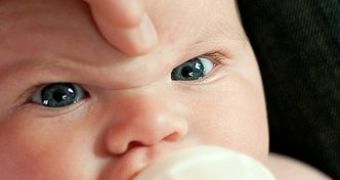If you think of becoming a father, you should start eating healthy food, a new research carried out by the University of New South Wales in Sydney, Australia, suggests.
Previous research has already proven that a poor maternal diet along with obesity can damage the offspring's metabolism and rise their risk of obesity, but lead author Margaret Morris and her colleagues say there are not enough data on the way that fathers' diet could influence their offspring.
She added that as many mothers get pregnant while overweight or obese, the chances are that many fathers do the same.
Their research focused on the impact that a high-fat diet in men could have on their offspring, and they tested their theories in mice.
One group of male rats were fed a high-fat diet and a control group was fed a normal diet, which led the members of the first group to become overweight and to have two hallmarks of type 2 diabetes (they had problems with glucose metabolism and were insulin resistant).
When the researchers examined the obese rats' daughters, they found that they developed diabetes before reaching puberty and their blood glucose concentrations were twice as high as those of daughters of healthy males; also, they produced half of the normal amount of insulin, NewScientist reports.
The scientists noted that healthy fathers had healthy daughters, as for the effects on the sons, they remain to be seen.
Morris said that “if similar effects apply in humans, it underlines the need for men to maintain a healthy diet and body weight, not only for their own health, but for that of the next generation.”
When the researchers analyzed the genetic material of the young female rats, they observed that they inherited DNA from their fathers with abnormal 'epigenetic' changes.
These changes were produced through a process called methylation, and they altered the activity of 624 genes related to the production of insulin by islet cells in the pancreas.
The team concluded that this was due to excessive dietary fat.
“We think this is one of the first findings in mammals where a nutritional effect in a father has been passed on to his offspring,” said Morris, who is also a researcher in obesity and diabetes.
The results of the study were published in Nature.

 14 DAY TRIAL //
14 DAY TRIAL //